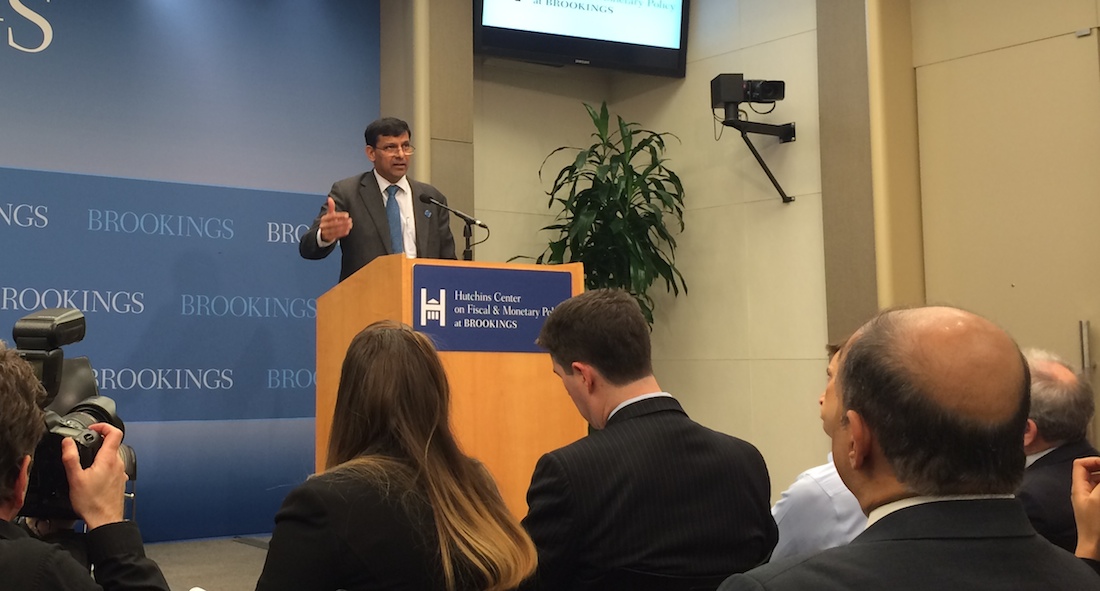WASHINGTON — Raghuram Rajan, governor of the Reserve Bank of India, called Thursday for stronger economic policy coordination between advanced and emerging markets.
“To ensure stable and sustainable growth, the international rules of the game need to be revisited, “Rajan said at a panel with international policymakers at the Brookings Institution.
“We need to break away from this cycle of unconventional policies and competitive monetary easing,” he added. “The events of recent months have set the stage for renewed reserve accumulation by the emerging markets… it will be harder for advanced economies to complain if they downplay their own spillover effects while they are pushing for recovery.”
Emerging market economies have been heavily influenced by the Federal Reserve’s moves to scale back its purchases of long-term bonds, also known as quantitative easing, and the “normalization” of interest rates.
Concern was focused on whether the Fed’s moves to scale back its purchases of long-term bonds has dampened economic growth — and whether the U.S. central bank has been sensitive enough to the impact of its policies on emerging markets.
BRIC countries—Brazil, Russia, India and China—are four of the biggest emerging markets that some experts believe will eventually surpass other major players in the global economy.
Although it’s important to pay attention to the role played by such countries, Chicago Federal Reserve President Charles Evans said the Fed’s main focus is on the United States.
“At some point, our mandate is for the U.S.,” Evans said. “We like to cooperate as much as we can with everyone, but if we are led to a low inflation experience, which is indicative of low aggregate demand and low employment, we’re not going to be doing anyone around the world any good.”
Vitor Constancio, vice president of the European Central Bank, had a mixed reaction to the remarks of Rajan, India’s central bank governor.
“I can sympathize with some aspects but not subscribe to criticism on the grounds he justified them,” Constancio said. “Until ‘09 it was all right to pursue those policies, but to extend them was wrong. What would have happened if the advanced economies didn’t pursue such policies? I think the world would be in a worse position.”
The Federal Reserve released minutes from its Federal Open Market Committee meeting Wednesday, revealing that the central bank would taper its bond-buying stimulus until it sees an improvement in the U.S. job market and the inflation rate reaches 2 percent.


